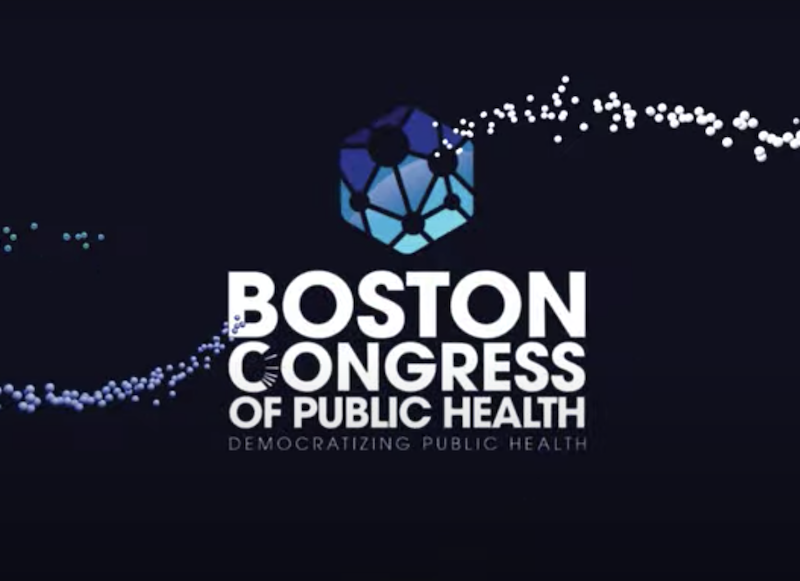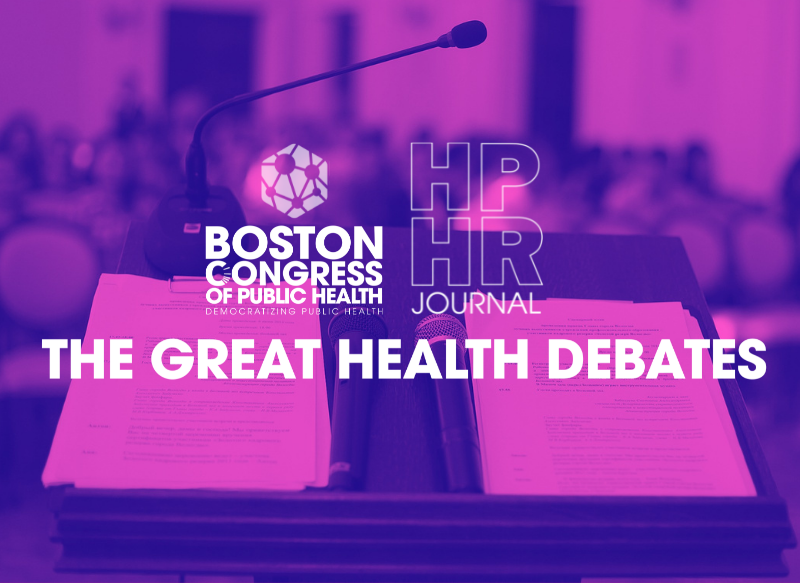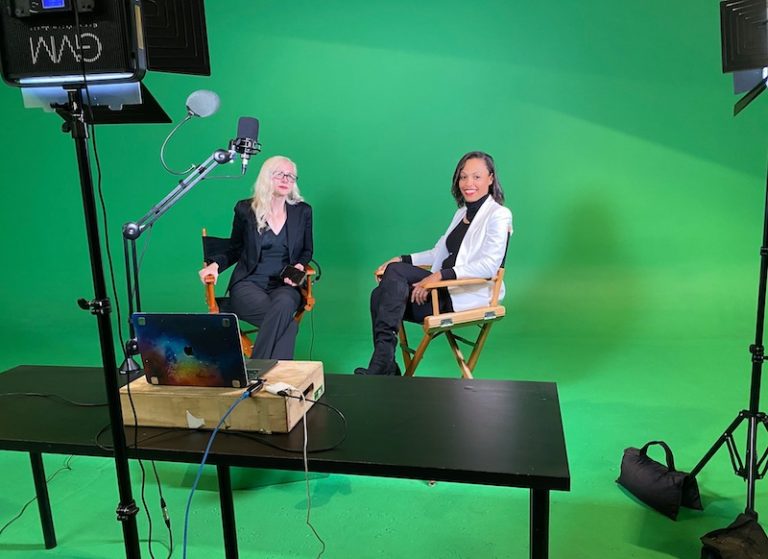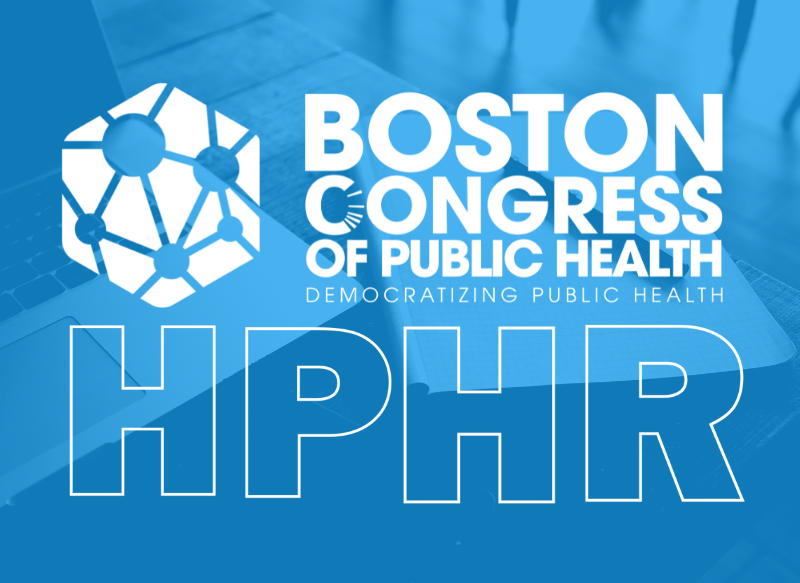Click the SoundCloud or YouTube links above to listen to the podcast.
Here is an edited transcript of the podcast.
Hey yo! What’s up folks! This is “Don’t Diss My Abilities Just Cuz You Jelly: Analyzing Ableism and Racism in the Workplace, A Case Study Part II.” We’re going to get right back into it:
When we last left the story, we were on the subject of disability. Remember those pain meds I had to take back when Ed was still in charge? These meds made me dizzy and affected my memory and at one point I was concerned that I wasn’t as productive as I usually was (which by the way was more easily managed at home than at the office). Because of this Ed and I set up an arrangement where I emailed him at the beginning and end of the day to track what I had left to get done and so that he could provide guidance on what he saw as being the most pressing task that day since I was moving a bit slower. Though time consuming, it was helpful and necessary to help me stay on task while I was temporarily on pain meds. Once I was off the meds, it was no longer necessary. I told That White Woman this, but she insisted that I continue with the time consuming practice and send the emails to her and Ned. If ever I missed a day because I was too engrossed in doing my actual job, she would berate me in front of the office. While my probation required that I checked in daily with my manager, the document did not specify how I would check in and it certainly did not say that I needed to continue with this model (I mean really we were all within feet of each other in the office, I could have swung around in my chair, verbally updated them, swung back around, and then got back to work), but it was an issue That White Woman forced anyway.
Ned did follow up with me about the terms of my probation and did away with many of the requirements except for the ones that were already almost completed. Still, I was working around 60 hours a week while taking a class that had requirements that seemed geared more towards students who handled case work full time and The Liberal Agenda just didn’t get that many requests for direct services. But when we did, I did the best I could to support including answering calls from native Spanish speakers.
Despite Spanish being my second language and limited opportunities to practice chatting in Spanish with folks in person, I was the only one in the office who spoke or understood it at all as my undergraduate degree was in Spanish. The few native Spanish speaking community members who were also versed in the specialized resources and information that our office had expertise in, were always overwhelmed with a multitude of responsibilities related to their language skills in their own workplaces even if it wasn’t in their job descriptions. Asking them to take on one of my job tasks and do so without pay was not only infeasible but unethical in my view. So I did my best to keep up with practicing so that I could help as best as I could. At one point, I had a client who needed information about navigating legal matters. The Liberal Agenda had a prepared document with the information the client needed, but it was very long and all in English. With the amount of hours I had already been working, there’s no way I had time to translate it myself. I was told to reach out to Spanish speaking community members to see if we could get it translated for free. When I was (understandably) unable to find anyone for free after spending weeks looking, That White Woman suggested a professional translator that she knew of. I emailed this person back and forth and asked for a quote. The translator wanted to know when it was needed and requested to see the document. I sent her the document and told her this person had been waiting for awhile so the sooner the better. The following week I received a email from the translator with a completed translation and a 3 figure invoice. I forwarded the email to That White Woman and Ned and 15 min later That White Woman came out of Ned’s office, berated me for not getting approval, and demanded that I forward the email chain while she stood over my shoulder and watched.
A week later, everyone in the office was told they could go home early so that the office was empty before our meeting. When it was our meeting time, I was told that the people who were in charge of the class I had been signed up for were upset (the white man and white woman in charge of the program emailed my counterpart and I multiple times and cc’d Ned to complain about us not meeting their demands). I was told by That White Woman that she’d witnessed my aforementioned counterpart setting up a room “all by themselves” and that it was a problem despite this coworker telling me several times after I would offer help that they preferred to set up alone because it was cathartic. I was blamed for a mistake that I believe Ned caused not me, the three figure translation was mentioned, Ned said that the client having to wait for a long time for the translation meant I was “behind” (which – not a thing in case management. Each case varies and takes different amounts of time. Also there were no time limit policies in place for finishing case work), I was blamed for other large scale organizational problems that absolutely everyone in the office struggled with from the top down, and then i was asked to resign. While I did push back as I had so many times over that last three months, at that point I was too burnt to want to deal with their bs anymore. So I signed the printed document they printed out for me which simply stated ““I resign” and then proceeded to get up and gather my things. TWW then told me that she had an event planning meeting coming up and asked if it was ok that they were going to have it in the office or if I wanted her to move it to another location. I immediately replied I preferred it moved. She said she would let them know ”on such short notice” and then left. I went to the laptop to sign myself out of all of my personal accounts. The entire time Ned stood behind me asking me to give him the laptop. I’m almost done I replied multiple times. Poor Neddy must’ve been standing there like 5-7min before stating that I signed out of everything (which I wasn’t) and straight up grabbing the laptop. I honestly find it fascinating that they both expected me to be accommodating or jump to follow any orders at that point. Any semblance of the control they hoped to have over me was released the moment I signed that document though.
To help me get all of my stuff, I called my parents and they agreed to come up immediately. After I got off the phone, Ned asked me ““who’s coming”? And I said ”my parents to help me – would you get me more boxes please?” When my parents arrived my mother said his eyes got really big so she smiled to reassure him. He continued to get boxes to help us get the rest of my stuff. My parents both thanked him for his help and we were on our way.
A few months later, after trying to make sense of my experience, I contacted a former coworker to go out to lunch and talk about it. I’ll refer to this person simply as, My Friend. During our lunch, I expressed my suspicions about That White Woman as I assumed she was behind much of what went down. It was then that My Friend told me about some emails they came across while organizing email inboxes (something they were tasked with doing for each Liberal Agenda staff member because again – we were all behind). They proceeded to describe emails between TdoubleW and Neddy dating back to the Ned’s first week on the job. That White Woman was pressuring him to get rid of me immediately before he had the chance to get to know me. And those daily emails she would start tripping about if I missed a day? Yea she was using those to complain about anything I didn’t get done that day and to paint me as incompetent. If I used flex hours it was a problem – in fact I remember a meeting where they both talked over me to each other about me while I was still in the room because they were aghast at how I used my flex hours. As a result they passed a new policy stating that everyone had to use their flex hours in THE EXACT SAME WAY THAT I HAD DESCRIBED USING THEM MULTIPLE TIMES IN THAT MEETING. But they decided their policy was a brand new great idea that everyone wasn’t already following (they were) and that this would ring me in i guess. Anyone else who needed to flex was given grace besides My Friend and I (who was placed on probation the same day I was). My Friend also told me about statements that were made after I left. Not wanting to break tradition TWW trashed my work, especially that brand new event centering QTBIPOC that I mentioned at the beginning of this story, calling it a waste of time; however, when it was time to put the event on again, she was all for it and I know that because I was in the email chain where she was invited. I’ll also note that there was no HR at this organization, so there was no where for me to go while this was happening. I will always be grateful to My Friend for having my back and telling me the truth.
While I had a strong support system and years of coping mechanisms to lean into, this experience did not come without repercussions. When I was first put on probation, I initially thought that I must have missed some signs or hints due to being autistic. This made me wonder if being employed was a feasible reality for me as I was very much aware of the disparities disabled folks face in employment and society in general. I feared maybe I wouldn’t be able to work at all and that I would end up on disability for the rest of my life. While these fears were short lived, this activated my depression as well as my PTSD. The extreme lack of sleep, lack of free time, stress from job searching while under these pressures, and everything else I was dealing with at work activated my anxiety. My mental health took a huge dive and I found my brain drifting back into suicidal ideation. I dealt with unemployment for a huge period of time which meant I had to drain my savings. While this was partly due to the pandemic, it wouldn’t have occurred had I not been targeted. This had major consequences for my life that continued long after this series of incidents. I’ve skipped gatherings I was invited to because I knew That White Woman would be there and I didn’t want to get into an argument cuz I sure as hell didn’t plan to pretend. When job searching (which is an anxious enough experience already), I would wonder if, despite not listing her a reference, she might do anything to sabotage my search if my perspective employer called to confirm my dates of employment and she were to pick up the phone – especially since she was in a position of power. In the end, my support system helped and has continued to help me prevail. For someone without the network or tools that I have, though, the story could have easily ended tragically. It is for this reason that I decided to share this story in hopes that the current employees at The Liberal Agenda as well as any organization in the nonprofit industry or in any industry for that matter, will hear this and be challenged and/or inspired, and that those who employ them will care enough to make substantial changes to ensure the health and safety of their employees. As Allison Abrams put it in her article about the APA’s 2023 Work in America survey: “Superhuman expectations, endless performance reviews, coworker rivalry, toxic micromanagers, narcissistic leaders, and lack of work-life boundaries are just a few of the culprits plaguing the American workforce today, further fueling our mental health crisis. If this is to change, then perhaps it is time to rethink our obsession with productivity and consider that there is more to life than work and that we are more than our jobs.”
A year after the start of the pandemic, My Friend and I decided to contact the board of The Liberal Agenda to snitch on That White Woman. She became the new executive director when Ned left a few months after my departure. After sharing our experiences with one another and processing together, we decided to tell them what happened and to ask for a public apology as well as accountability. We left it up to them to decide what accountability looked like. Shortly after sharing our story, we were contacted by the former board president and told that she would be seeing over the “investigation” since she was board president during our employment. I call it a “investigation” and not an investigation because despite being told that everyone involved was interviewed, the white woman they had “investigate” this case interviewed me but did not bother to interview My Friend who also shared their story and acted as a witness to mine. Past Prez apologized for any “unsatisfactory” employee experience, but their “investigation” concluded there was no evidence to support my claims of racism or ableism. They did, however, appoint a board member to serve as a resource for employees who may have concerns in the future. Which, by the way, is not accountability – at least not for the two of us. It provides the possibility of accountability for the next person this happens to, but it doesn’t prevent it from happening to begin with.
For the record, I didn’t expect for them to follow through with anything we asked for. My hypothesis before going through this was that they would deploy silencing and intimidation tactics. To my surprise this did not happen. Not to my surprise, their solution was lackluster. I know what you’re asking, if you didn’t expect for this to go anywhere, why did you bother? To finish my case study, of course. I was fully aware that this is something many people have had to go through. I wanted to see what would happen next if I went through those “proper channels” that people like to hype so much. I needed an ending to the story. I knew I would use it one day to analyze the experience from an academic perspective. I also knew the case study would be a useful tool for others to analyze as well due to the intersectional nature of this story – there are so many lenses through which this story can be viewed. It could be used as an example to analyze the workplace experiences of Black folks, Black women and fems, of Black nonbinary folks, of Autistic folks, of Black autistic folks, of neurodivergent or disabled folks in general, of young folks, of fat folks, of fat fem folks, and so on and so forth. For the sake of time, I can choose only one or two lenses through which to analyze. Therefore, to conclude this podcast episode, I will provide 10 bullet points analyzing my experience through the lens of racial and disability justice. I invite you all to analyze this story based on your own research, knowledge, and perspectives.
So, let’s analyze:
We’ll start by looking at the identities involved. I was in my late 20s at the time of the story, and as a reminder I’m dark-skinned, African American, fat, gender fluid, autistic, and have PTSD, chronic pain, ADHD, ADD, depression, and anxiety. While I do not identify as a woman, my experiences often echo the experiences of Black women. Also, researchers don’t tend to understand or acknowledge that many of the issues they are describing are also faced by nonbinary folks. Therefore, much of the research I use centers Black women and women of color.
That White Woman, Ed, and Neddy were all over 30, white, thin, cisgender, and allistic with varying degrees of mental health status.
In conclusion, there are no shortages of stories like this one. If you can relate (or even if you don’t think you can), please look for articles that give you healing advice and/or take action to improve the culture in your workplace. If you have your own analysis of this case study or advice that you would like to share, then please feel free to comment. In our upcoming episodes we will continue to explore, blackness, fatness, and gender in the workplace. These episodes will have information in them that may reshape how you view this story, so please keep it in the back of your minds as we continue the conversation. Thanks for listening and I hope you’ll join me again.
The mission of the Boston Congress of Public Health Thought Leadership for Public Health Fellowship (BCPH Fellowship) seeks to:
It is guided by an overall vision to provide a platform, training, and support network for the next generation of public health thought leaders and public scholars to explore and grow their voice.





